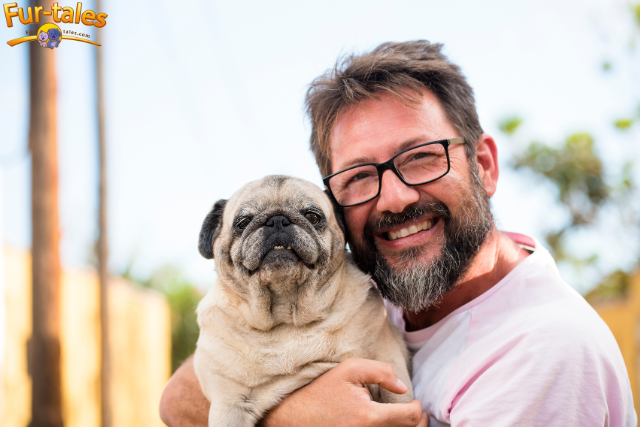
4 Reasons Why Your Dog Has Bad Breath
Few things are more off-putting than leaning in for a cuddle with your dog—only to be hit with a blast of unpleasant breath. While it’s easy to shrug off as “normal dog breath,” persistent foul odor from your dog’s mouth could be a sign of an underlying issue.
Bad breath, or halitosis, is often more than just a smelly inconvenience. It can point to dental disease, dietary issues, or even internal health problems. Understanding the root cause is the first step toward treating the issue and improving your dog’s overall well-being.
Let’s break down the top 4 reasons your dog might have bad breath—and what you can do about it.
1. Poor Dental Hygiene
The Most Common Cause
Just like humans, dogs need regular dental care. Without brushing, plaque and tartar build up on their teeth, leading to bacteria overgrowth, gum inflammation, and a foul smell.
How It Happens
Food particles, saliva, and bacteria mix to form plaque. If not cleaned off, it hardens into tartar, which irritates the gums and fosters odor-causing bacteria.
Bonus Tip:
Consider using a finger toothbrush or dental wipes if your dog resists traditional brushing. Start slow and pair the experience with positive reinforcement.
Signs to Look For
- Yellow or brown buildup on teeth
- Red, swollen, or bleeding gums
- Reluctance to eat or chew toys
- Drooling or pawing at the mouth
What to Do
- Brush your dog’s teeth daily or at least 3–4 times per week
- Provide dental chews or dental diets
- Schedule regular vet dental cleanings
- Use dog-safe mouth rinses or water additives
2. Diet and Eating Habits
The Role of Food
Sometimes, bad breath is simply the result of what your dog eats. Dogs that eat low-quality food, scavenge outdoors, or consume table scraps can develop foul-smelling breath.
Gross but True: Coprophagia
Some dogs eat feces (their own or other animals’)—a behavior called coprophagia. This can cause breath that smells particularly foul.
Other Offenders
- Spoiled food or garbage
- Rawhide or bone fragments stuck in teeth
- Poor digestion of certain proteins or fillers
What to Do
- Feed a high-quality, balanced diet
- Prevent access to trash and animal feces
- Use enzyme-based dental chews that help digest odor-causing particles
- Consult your vet about probiotics or digestive aids
3. Underlying Health Conditions
Bad Breath Can Be a Warning Sign
Persistent or sweet-smelling bad breath may indicate internal medical problems that require veterinary attention.
Potential Causes
- Kidney Disease: Causes a metallic or ammonia-like odor
- Diabetes: Sweet, fruity-smelling breath could signal unmanaged diabetes
- Liver Disease: May cause foul-smelling breath with a yellowish tint to the gums
- Gastrointestinal Disorders: Chronic upset stomach or reflux can produce unpleasant mouth odors
What to Do
- Monitor for other symptoms like increased thirst, lethargy, vomiting, or weight loss
- Get a full veterinary exam and bloodwork if the odor is persistent and unusual
- Follow any prescribed treatments or dietary changes from your vet
Senior Dog Alert:
Older dogs are more prone to underlying health issues, especially kidney or liver problems. Bad breath in senior dogs should never be ignored, even if they’ve always had a “doggy” scent.
4. Oral Infections or Foreign Objects
Something Might Be Stuck
Dogs are curious chewers. Sticks, bones, or toys can become lodged in the mouth, leading to infections and odors if not removed.
Oral Infections
Abscesses, decayed teeth, and infected gums are painful and pungent. Left untreated, these can spread bacteria into the bloodstream.
Signs to Look For
- One-sided bad breath
- Drooling or difficulty eating
- Swelling on the face or under the eyes
- Visible pus or discharge in the mouth
What to Do
- Check your dog’s mouth regularly
- Don’t try to pull out objects embedded in the gums—go to the vet
- Treat infections promptly with veterinary-prescribed antibiotics or dental procedures
Did You Know?
Some breeds—like Pugs, Bulldogs, and Yorkies—are more prone to dental problems due to the shape of their jaws. If you have a brachycephalic (flat-faced) breed or a toy breed, be extra diligent with dental care.
Prevention Is the Best Cure
Prevention is key when it comes to bad breath. The earlier you adopt a dental care routine, the easier it becomes for both you and your dog.
A Simple Weekly Dental Plan:
- Daily: Brushing or dental wipe
- 2–3 Times a Week: Dental chew or enzymatic treat
- Weekly: Oral rinse or water additive
- Monthly: Oral exam at home (check teeth, gums, breath)
- Biannually or Annually: Professional cleaning by a vet
Tip:
Use flavored toothpaste made specifically for dogs. Human toothpaste contains xylitol, which is toxic to pets.
Final Thoughts
Bad breath in dogs is often more than just a nuisance—it’s a sign that something needs attention, whether it’s plaque buildup, poor diet, or a deeper health issue. By addressing the cause early, you can help your dog feel better, smell fresher, and stay healthier.
Make oral care part of your regular routine, feed your dog wisely, and never hesitate to call your vet if something smells… off.
Your dog’s breath may never smell like roses, but with a little effort, it doesn’t have to clear the room either. Healthy mouth, happy pup!
Image Designed using Canva
